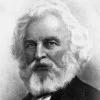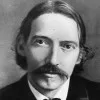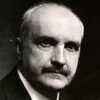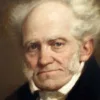You dull your own perceptions
with false imaginings and do not grasp
what would be clear but for your preconceptions.
[Tu stesso ti fai grosso
col falso imaginar, sì che non vedi
ciò che vedresti se l’avessi scosso.]Dante Alighieri (1265-1321) Italian poet
The Divine Comedy [Divina Commedia], Book 3 “Paradiso,” Canto 1, l. 88ff (1.88-90) [Beatrice] (1320) [tr. Ciardi (1970)]
(Source)
Dante's beloved Beatrice greets him for the first time since his arrival in Paradise, chiding him for his terrestrial assumptions of what he's seeing.(Source (Italian)). Alternate translations:False Forms deceive thy optics. Son of Man!
With shadowy objects which eclipse the true.
[tr. Boyd (1802), st. 20]With false imagination thou thyself
Mak’st dull, so that thou seest not the thing,
Which thou hadst seen, had that been shaken off.
[tr. Cary (1814)]Imagination false
Hath made thee dull, so that thou canst not see
That thou might'st, hadst thou looked diligently.
[tr. Bannerman (1850)]Thou makest thyself so dull
With false imagining, that thou seest not
What thou wouldst see if thou hadst shaken it off.
[tr. Longfellow (1867)]Thou thyself makest thyself gross with false imagining, so that thou seest not that which thou wouldest have seen, if thou hadst shaken it off.
[tr. Butler (1885)]Thyself thou makest blind
With thy false fancy, that thou canst not see
What thou wouldst see, if this were thrown behind.
[tr. Minchin (1885)]Thou thyself makest thyself dull with false imagining, so that thou seest not what thou wouldst see, if thou hadst shaken it off.
[tr. Norton (1892)]Thou thyself makest thyself dense Earthly with false imagining, and so thou seest not what heavenly thou wouldst see, if thou hadst cast it off.
[tr. Wicksteed (1899)]Thou dullest thine own wit
With false imagination, nor preceivest
That which thou wouldst perceive, being rid of it.
[tr. Sayers/Reynolds (1962)]Thou makest thyself dull with false fancies so that thou canst not see as thou wouldst if thou hadst cast them off.
[tr. Sinclair (1939)]Thou makest thyself dense of wit
With false fancy, so that thou dost not see
What thou would’st see, wert thou but rid of it.
[tr. Binyon (1943)]You make yourself dull with false imagining, so that you do not see what you would see had you cast it off.
[tr. Singleton (1975)]You are making yourself stupid
By imagining what isn’t, so that you do not
See what you would if you could shake that off.
[tr. Sisson (1981)]You make yourself
obtuse with false imagining; you can
not see what you would see if you dispelled it.
[tr. Mandelbaum (1984)]You have yourself to blame for burdening
your mind with misconceptions that prevent
from seeing clearly what you might have seen.
[tr. Musa (1984)]You are making yourself swell
with false imagining, so that you do not see
what shaking it off would show.
[tr. Durling (2011)]You make yourself stupid with false imaginings, and so you do not see, what you would see, if you discarded them.
[tr. Kline (2002)]With false imaginings
you make yourself so dull you fail to see
what, shaking off this cloud, you’d see quite well.
[tr. Kirkpatrick (2007)]You make yourself dull-witted
with false notions, so that you cannot see
what you would understand, had you but cast them off.
[tr. Hollander/Hollander (2007)]You're overwhelming yourself with false
And foolish conjuring, preventing what your eyes
Would see if you did not struggle so hard for triumph.
[tr. Raffel (2010)]You get all mixed up
By sticking with a figment of your imagination, so
You don’t see what you would see if you shook it off.
[tr. Bang (2021)]
Quotations about:
perception
Note not all quotations have been tagged, so Search may find additional quotes on this topic.
The same holds true of almost every superstition — as astrology, dreams, omens, judgments, and the like — wherein men, pleased with such vanities, attend to those events which are fulfilments; but neglect and pass over the instances where they fail (though this is much more frequently the case).
[Eadem ratio est fere omnis superstitionis, ut in astrologicis, in somniis, ominibus, nemesibus, et hujusmodi; in quibus homines delectati hujusmodi vanitatibus advertunt eventus, ubi emplentur; ast ubi fallunt, licet multo frequentius, tamen negligunt et praetereunt.]
Francis Bacon (1561-1626) English philosopher, scientist, author, statesman
Instauratio Magna [The Great Instauration], Part 2 “Novum Organum [The New Organon],” Book 1, Aphorism # 46 (1620) [tr. Johnson (1859)]
(Source)
See also Bacon.
(Source (Latin)). Alternate translations:All superstition is much the same, whether it be that of astrology, dreams, omens, retributive judgment, or the like; in all of which the deluded believers observe events which are fulfilled, but neglect and pass over their failure, though it be much more common.
[tr. Wood (1831)]And such is the way of all superstition, whether in astrology, dreams, omens, divine judgments, or the like; wherein men, having a delight in such vanities, mark the events where they are fulfilled, but where they fail, though this happen much oftener, neglect and pass them by.
[tr. Spedding (1858)]The same method is found, perhaps, in every superstition, like astrology, dreams, omens, divine judgements, and so on: people who take pleasure in such vanities notice the results when they are fulfilled, but ignore and overlook them when they fail, though they do fail more often than not.
[tr. Silverthorne (2000)]That’s how it is with all superstition -- involving astrology, dreams, omens, divine judgments, and the like, Men get so much pleasure out of such vanities that they notice the confirming events and inattentively pass by the more numerous disconfirming ones.
[tr. Bennett (2017)]
Old age is like an opium-dream. Nothing seems real except what is unreal.
Oliver Wendell Holmes, Sr. (1809-1894) American poet, essayist, scholar
Over the Teacups, ch. 2 “To the Reader” (1891)
(Source)
It is the function of art to renew our perception. What we are familiar with we cease to see. The writer shakes up the familiar scene, and as if by magic, we see a new meaning in it.
Anaïs Nin (1903-1977) Catalan-Cuban-French author, diarist
The Novel of the Future, ch. 2 “Abstraction” (1968)
(Source)
LSD reveals the whatness of things, their quiddity, their essence. The wateriness of water is suddenly revealed to you, the carpetness of carpets, the woodness of wood, the yellowness of yellow, the fingernailness of fingernails, the allness of all, the nothingness of all, the allness of nothing. For me music gives access to every one of these essences of existence, but at a fraction of the social or financial cost of a drug and without the need to cry ‘Wow!’ all the time, which is one of LSD’s most distressing and least endearing side-effects.
Stephen Fry (b. 1957) British actor, writer, comedian
Moab Is My Washpot, “Joining In,” ch. 3 (1997)
(Source)
French food, by the way, isn’t fancy unless, like other cooking, it wants to be fancy; perhaps it sounds so because it is in a foreign language, but a Coq au Vin is a chicken stew, a Pot-au-feu is a boiled dinner, a Mayonnaise de Volaille is a chicken salad, Soubise is plain old rice cooked with onions, and there is nothing fancy about any of them.
Julia Child (1912-2004) American chef and writer
Julia Child’s Kitchen, Introduction (1975)
(Source)
Apparently, on the screen, I look tall, dark, and close to omniscient, issuing jeopardy-laden warnings through gritted teeth. And then they look at me [in person] and say, “Why, God, this kid is five-foot-five, he’s got a broken nose, and looks about as foreboding as a bank teller on a lunch break.”
Rod Serling (1924-1975) American screenwriter, playwright, television producer, narrator
Quoted in Anne Serling, As I Knew Him: My Dad, Rod Serling (2013)
(Source)
Try to remember this: what you project
Is what you will perceive; what you perceive
With any passion, be it love or terror,
May take on whims and powers of its own.
If I had been on the hills of Bethlehem in the year one, I do not think I should have heard angels singing because I do not hear them now, & there is no reason to suppose that they have stopped.
Northrop Frye (1912-1991) Canadian literary critic and literary theorist
Notebooks and Lectures on the Bible and Other Religious Texts, Notebook 11f, entry 5 (2003) [ed. Robert D. Denham]
(Source)
The highest exercise of imagination is not to devise what has no existence, but rather to perceive what really exists, though unseen by the outward eye, — not creation, but insight.
Such as are your habitual thoughts, such also will be the character of your mind; for the soul becomes dyed with the color of its thoughts.
Marcus Aurelius (AD 121-180) Roman emperor (161-180), Stoic philosopher
Meditations, Book 5, #16
Alt. trans.:
- "Your mind will be like its habitual thoughts; for the soul becomes dyed with the color of its thoughts."
- "Whatever kind of impressions you receive most often, so too will be your mind, for the soul is dyed with the color of one's impressions." [tr. Needleman & Piazza (2008)]
- "Your manners will depend very much upon the quality of what you frequently think on; for the soul is as it were tinged with the color and complexion of thought." [tr. Collier (1887)]
The last clause is also frequently attributed to William Ralph Inge, who likely used it in an essay.
What a man sees, Love can make invisible —
And what is invisible, that can Love make him see.[Quel che l’huom vede Amor gli fa invisibile
E l’invisibil fa vedere Amore.]Ludovico Ariosto (1474-1533) Italian poet
Orlando Furioso, Canto 1, st. 56 [ll. 396-97] (1532) [tr. Waldman]
There is no “True.” There are only ways of perceiving.
Gustave Flaubert (1821-1880) French writer, novelist
Letter to Léon Hennique (3 Feb 1880) [tr. Steegmuller (1982)]
(Source)
True art selects and paraphrases, but seldom gives a verbatim translation.
Thomas Bailey Aldrich (1836-1907) American writer, poet, critic, editor
“Leaves From a Notebook,” Ponkapog Papers (1903)
(Source)
Better keep yourself clean and bright: you are the window through which you must see the world.
George Bernard Shaw (1856-1950) British playwright and critic
The Revolutionist’s Handbook, “Honor” (1905)
(Source)
Poverty of goods is easy to cure, poverty of soul impossible.
[La pauvreté des biens, est aisée à guerir, la pauvreté de l’ame, impossible.]
Michel de Montaigne (1533-1592) French essayist
Essays, Book 3, ch. 10 “Of Managing the Will [De mesnager sa volonté]” (1586) (3.10) (1595) [tr. Frame (1943)]
(Source)
In context, "poverty of the soul" is given by Montaigne, not as a moral failing, but as the soul-felt sense of poverty, of not having enough, of needing to attain more.
The essay, including this passage, first appeared in the 2nd ed. (1588).
(Source (French)). Alternate translations:Want of goods may easilie be cured, but the poverty of the mind, is incurable.
[tr. Florio (1603)]The Want of Goods, is easily repair'd; but the Poverty of the Soul is irreparable.
[tr. Cotton (1686)]The poverty of goods is easily cured; the poverty of the soul is irreparable.
[tr. Cotton/Hazlitt (1877)]Poverty in worldly goods is easy to cure; poverty of the soul, impossible.
[tr. Ives (1925)]To cure poverty of possessions is easy: poverty of soul impossible.
[tr. Screech (1987)]Poverty of possessions may easily be cured, but poverty of soul never.
[Source]
You must look into people, as well as at them. Almost all people are born with all the passions, to a certain degree; but almost every man has one prevailing one, to which the others are subordinate. Search every one for that ruling passion; pry into the recesses of his heart, and observe the different workings of the same passion in different people; and when you have found out the prevailing passion of any man, remember never to trust him where that passion is concerned. Work upon him by it, if you please; but be upon your guard yourself against it, whatever professions he may make you.
Lord Chesterfield (1694-1773) English statesman, wit [Philip Dormer Stanhope]
Letter to his son, #112 (4 Oct 1746)
(Source)
Even fools who keep silent are considered wise;
when they close their lips, they are deemed intelligent.The Bible (The Old Testament) (14th - 2nd C BC) Judeo-Christian sacred scripture [Tanakh, Hebrew Bible], incl. the Apocrypha (Deuterocanonicals)
Proverbs 17:28 [NRSV (2021 ed.)]
(Source)
See Twain.
Alternate translations:Even a fool, when he holdeth his peace, is counted wise: and he that shutteth his lips is esteemed a man of understanding.
[KJV (1611)]If a fool can hold his tongue, even he can pass for wise, and pass for clever if he keeps his lips tight shut.
[JB (1966)]After all, even fools may be thought wise and intelligent if they stay quiet and keep their mouths shut.
[GNT (1976)]If the fool holds his tongue, he may pass for wise; if he seals his lips, he may pass for intelligent.
[NJB (1985)]Fools who keep quiet are deemed wise;
those who shut their lips are smart.
[CEB (2011)]Even fools who keep silent are deemed wise;
Intelligent, while their mouth is shut.
[RJPS (2023 ed.)]
Life does not consist mainly — or even largely — of facts and happenings. It consists mainly of the storm of thoughts that is forever blowing through one’s head.
Mark Twain (1835-1910) American writer [pseud. of Samuel Clemens]
Autobiography, Part 1, sec. 28 “New York, January 10, 1906” (2003)
Full text.
Nothing we use or hear or touch can be expressed in words that equal what is given by the senses.
Hannah Arendt (1906-1975) German-American philosopher, political theorist
The Life of the Mind, Vol. 1 “Thinking,” Introduction (1977)
(Source)
Reprinted in "Thinking -- I" New Yorker (21 Nov 1977)
But Yahweh said to Samuel, “Take no notice of his appearance or his height for I have rejected him; God does not see as man sees; man looks at appearances but Yahweh looks at the heart.”
The Bible (The Old Testament) (14th - 2nd C BC) Judeo-Christian sacred scripture [Tanakh, Hebrew Bible], incl. the Apocrypha (Deuterocanonicals)
1 Samuel 16: 7 [JB (1966)]
(Source)
God rejecting Eliab (and all of David's other brothers) to be the next king. Alternate translations:But the Lord said unto Samuel, Look not on his countenance, or on the height of his stature; because I have refused him: for the Lord seeth not as man seeth; for man looketh on the outward appearance, but the Lord looketh on the heart.
[KJV (1611)]But the Lord said to him, “Pay no attention to how tall and handsome he is. I have rejected him, because I do not judge as people judge. They look at the outward appearance, but I look at the heart.”
[GNT (1976)]But the Lord said to Samuel, “Do not look on his appearance or on the height of his stature, because I have rejected him, for the Lord does not see as mortals see; they look on the outward appearance, but the Lord looks on the heart.”
[NRSV (1989)]
No man lives in the external truth among salts and acids, but in the warm, phantasmagoric chamber of his brain, with the painted windows and the storied wall.
Robert Louis Stevenson (1850-1894) Scottish essayist, novelist, poet
Essay (1888-02), “The Lantern-Bearers,” sec. 3 Scribner’s Magazine, Vol. 3, No. 2
(Source)
Collected in Across the Plains, ch. 7 (1892).
There is a kind of courtesy in scepticism. It would be an offence against polite conventions to press our doubts too far and question the permanence of our estates, our neighbours’ independent existence, or even the justification of a good bishop’s faith and income. Against metaphysicians, and even against bishops, sarcasm was not without its savour; but the line must be drawn somewhere by a gentleman and a man of the world.
George Santayana (1863-1952) Spanish-American poet and philosopher [Jorge Agustín Nicolás Ruíz de Santayana y Borrás]
The Life of Reason or The Phases of Human Progress, Vol. 1 “Reason in Common Sense,” ch. 4 (1905-06)
(Source)
Every man takes the limits of his own field of vision for the limits of the world.
[Jeder hält das Ende seines Gesichtskreises für das der Welt.]
Arthur Schopenhauer (1788-1860) German philosopher
Parerga and Paralipomena, Vol. 2, ch. 26 “Psychological Observations [Psychologische Bemerkungen],” § 338 (1851) [tr. Saunders (1890)]
(Source)
(Source (German)). Alternate translation:Everyone regards the limits of his field of vision as those of the world.
[tr. Payne (1974)]
The limits of my language mark the limits of my world.
Ludwig Wittgenstein (1889-1951) Austrian-English philosopher
Tractatus Logico-Philosophicus, 5.6 (1921)
Alt. trans:
- "The boundary of my language is the boundary of my world." [tr. Kolak]
- "The limits of my language mean the limits of my world." [tr. Pears and McGuinness]
- "The limits of my language stand for the limits of my world."
CYNIC, n. A blackguard whose faulty vision sees things the way they are, and not as they ought to be.
Ambrose Bierce (1842-1914?) American writer and journalist
“Cynic,” The Cynic’s Word Book (1906)
(Source)
Included in The Devil's Dictionary (1911).
Originally appeared in his "The Cynic's Dictionary" column in the San Francisco Wasp (1881-10-28).
In his "Town Crier" column in the News Letter (1872-03-09), he wrapped up his personal philosophy so: "And, finally, most important of all, endeavor to see things as they are, not as they ought to be."
In every object there is inexhaustible meaning; the eye sees in it what the eye brings means of seeing.
Thomas Carlyle (1795-1881) Scottish essayist and historian
(Misattributed)
Carlyle uses this phrase in his The French Revolution: A History, Part 1, Book 1, ch. 2 (1.1.2) (1837), but brackets it in quotations, and prefaces it with "For indeed it is well said ...." Nevertheless, the phrase is often misattributed directly to Carlyle.
The second half of the phrase (and sometimes the whole thing) has also been misattributed to Johann von Goethe, as "The eye sees only what the eye brings means of seeing." This is not found in Goethe's work, but may be distorted from a line in the Prologue to Goethe's Faust: "Each one sees what he carries in his heart."
If you are pained by external things, it is not they that disturb you, but your own judgment of them. And it is in your power to wipe out that judgment now.
Marcus Aurelius (AD 121-180) Roman emperor (161-180), Stoic philosopher
Meditations, Book 8, #47 [tr. Long (1862)]
(Source)
Modernized version (see below for original). Alternate translations:
- "If therefore it be a thing external that causes thy grief, know, that it is not that properly that doth cause it, but thine own conceit and opinion concerning the thing: which thou mayest rid thyself of, when thou wilt." [tr. Casaubon (1634), #45]
- "If externals put you into the spleen, take notice 'tis not the thing which disturbs you, but your notion about it: which notion you may dismiss if you please." [tr. Collier (1701)]
- "If thou art pained by any external thing, it is not this thing that disturbs thee, but thy own judgment about it. And it is in thy power to wipe out this judgment now." [tr. Long (1862), original]
- "If anything external vexes you, take notice that it is not the thing which disturbs you, but your notion about it, which notion you may dismiss at once if you please." [tr. Zimmern (1887)]
- "If you suffer pain because of some external cause, what troubles you is not the thing but your decision about it, and this it is in your power to wipe out at once." [tr. Farquharson (1944)]
- "If you are distressed by anything external, the pain is not due to the thing yourself but to your estaimte of it; and this you have the power to revoke at any moment." [tr. Staniforth (1964)]
CALVIN: Know what’s weird? Day by day nothing seems to change. But pretty soon, everything is different.





































